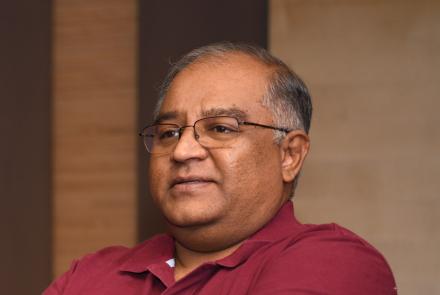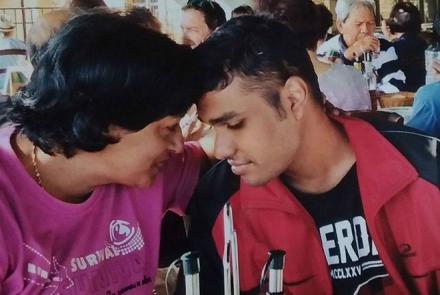Dr Pradnya Gadgil, Consultant Paediatric Neurology and Complex Epilepsy explains the causes and complexities of childhood epilepsy, how it differs from adult epilepsy, the relationship of seizures with sleep and more.
What is childhood epilepsy? How does it differ from epilepsy in adults?
Epilepsy is a tendency to experience recurrent seizures- without a specific trigger. For example, seizures people experience after a head injury or with low sugar/ low calcium (in babies) do not…

10 Myths and Facts about Epilepsy and Seizures dispelled by leading neurologist Dr Nirmal Surya, who has been working for over two decades to control epilepsy. Dr. Nirmal Surya emphasizes that with timely diagnosis and treatment about two-thirds of people with epilepsy can completely control their seizures.
- MYTH: Epilepsy is contagious disease and spreads through touching and coughing.
FACT: Epilepsy is a disease of the brain. It occurs due to the abnormal hyperactivity or sudden surge of electrical activity in the brain. It is not a contagious disease and cannot be transmitted through touching, coughing or sharing a meal.
- MYTH: Sniffing an onion or a metal, etc., helps terminate an ongoing epileptic attack.
FACT: No. Since the patient is unconscious during an epileptic attack, putting onion or shoe on the nose or metal in the hand will not make any difference as the patient is unconscious or unaware. These are irrational beliefs. Such activities will not help at all.
- MYTH: You should force something into the mouth of someone having a seizure.
FACT: Absolutely not! You are bound to damage someone’s teeth or dislocate the jaw. Or you could injure your fingers as patient is clenching his/her teeth. If the mouth is open, place a soft cotton object, like a handkerchief, between the side teeth. Do not try putting anything like water or any other liquid as it may go into the lungs and the patient may suffocate and die.
- MYTH: You can swallow your tongue during a seizure.
FACT: It's physically impossible to swallow your tongue.
- MYTH: People with epilepsy are mentally ill or emotionally unstable.
FACT: As already mentioned, epilepsy is a disease of the brain. It is NOT a mental or psychiatric illness. Different parts of the brain control different human behaviours, emotions and memory. If a fit arises in any of these areas, the patient may behave abnormally during the seizures for a few seconds to a few minutes. However, they become absolutely normal once the electrical activity settles down. That means such abnormal behaviour are episodic, periodic or transient, and the patient has no memory of these attacks.
- MYTH: People with epilepsy can’t work, excel at school, have children or lead normal lives.
FACT: The answer comes from great people like Alfred Nobel, Newton, Alexander the Great – all of whom had epilepsy, yet excelled in their fields. In modern times, I can think of cricket legend Jonty Rhodes. So where is the question that epilepsy patients cannot do well? Epilepsy is a medical condition that can be managed. Hence people with epilepsy can lead full, normal lives. There have been many people with epilepsy who have achieved great things in all fields. Here are the names of only a few legends with epilepsy - Napolean, Alexander the Great, Lord Byron, Vincent Van Gogh, Theodore Roosevelt, Lewis Carroll, Charles Dickens. This amply proves that nothing should stop a person with epilepsy aim high. - MYTH: Epilepsy makes people unfit for marriage.
FACT: This is one of the biggest and most disturbing myths in India. There is a huge stigma surrounding people, especially women, with epilepsy. They are rejected, humiliated and ostracized at the time of marriage, often forcing women to conceal their epilepsy. The truth is epilepsy patients can lead a normal life, can get married and have children. 98 per cent of patients with epilepsy have no genetic background and therefore getting married is not an issue.
- MYTH: Epilepsy is a form of spiritual possession.
FACT: Since ancient times, epilepsy has been associated with religion and believed to be caused by spirits. This is totally untrue, unsound and misleading. Epilepsy organizations are working hard to educate people that epilepsy is a medical condition, a disorder of the brain that causes sufferers to have recurrent seizures. There is absolutely no religion, spirits or black magic involved. The myth of spiritual possession has come because in ancient times epilepsy was not diagnosed to be a disorder of the brain. And it was confused with hysteria or psychological problem. The fact is that this myth has not place in epilepsy. Epilepsy is a disease of the brain and it is treatable.
- MYTH: People with epilepsy should be treated by faith healers and sorcerers.
FACT: Epilepsy is a disease of the brain. Hence, epilepsy should be treated by neurologists, epileptologists, physicians and paediatricians.
- MYTH: Epilepsy treatments rarely work.
FACT: Treatment of epilepsy can be either medical or surgical. With the right medication at the right dose, about two-thirds of people with epilepsy can completely control their seizures. About 70 per cent of patients can be treated if they take single medical drug properly from early time. Another 15 per cent cases can be treated effectively with epilepsy surgery, special diets, nerve stimulation or other treatment. 10-15 per cent patients can be refractory (when medicine isn't bringing your seizures under control) and may require other forms or multiple forms of treatment. But it is important to remember that 85 per cent of patients with epilepsy can be treated today at a proper epilepsy centre.
Changed
03/May/2017
Community
Condition













